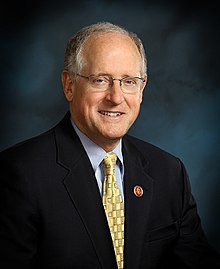No New Work Requirements for Food Stamps (Signed into Law)
No New Work Requirements for Food Stamps (Signed into Law)
Synopsis:
Signed (12/21/18): The conference committee eliminated the proposed modifications to SNAP work requirements in the final bill, which subsequently passed the Senate and House with large majorities. President Trump signed it into law Dec. 21, 2018.
Update (6/21/18): H.R. 2 passed the U.S. House of Representatives 213–211 on June 21, 2018.
Update (6/28/18): S. 3042, the U.S. Senate’s version of the farm bill that does not make significant changes to SNAP, passed the Senate 86–11 on June 28, 2018. Lawmakers from the two chambers will now form a conference committee to reconcile differences between the two bills.
Signed (12/21/18): The conference committee eliminated the proposed modifications to SNAP work requirements in the final bill, which subsequently passed the Senate and House with large majorities. President Trump signed it into law Dec. 21, 2018.
H.R. 2, the “farm bill,” reauthorizes Department of Agriculture programs including the Supplemental Nutrition Assistance Program (SNAP). It would mandate that SNAP recipients who are “physically and mentally fit” be employed or involved in a job training program for at least 80 hours per month. That is consistent with current law; however, H.R. 2 would raise the minimum to 100 hours per month in 2026. It would also increase the length of time recipients who violate work requirements become ineligible to receive SNAP benefits. The penalty for a first violation would rise from one month to one year, and for a second violation from three months to three years. Proponents of H.R. 2 say that government-provided benefits discourage recipients from getting jobs unless paired with work requirements. They contend that these policies offer reasonable accommodations for people who may have difficulty working 80 hours every month. Opponents characterize work requirements as a way to deny SNAP benefits to otherwise-eligible households by adding bureaucratic hurdles. Advocates fear that people with disabilities are at risk because SNAP administrators may not accurately identify those who should receive accommodations.
Supporters:
Reps. Mike Conaway (R-Texas), Paul Ryan (R-Wis.); President Donald Trump, Agriculture Secretary Sonny Perdue; Foundation for Government Accountability.
Opponents:
Reps. Collin Peterson (D-Minn.), Lisa Blunt Rochester (D-Del.); Association of University Centers on Disabilities, Autistic Self Advocacy Network, Consortium for Citizens with Disabilities, Disability Rights & Education Defense Fund, Easterseals, Environmental Working Group, Food Resource & Action Center, National Association of Councils on Developmental Disabilities, The Arc.
Links to Additional Resources:
Congressional Budget Office analysis of H.R. 2
Consortium for Citizens with Disabilities letter opposing H.R. 2
Rep. Mike Conaway op-ed: “Food-stamp work requirements will lift Americans out of poverty”
Politico: “Senate passes farm bill, setting up food stamp battle with the House”
The Hill op-ed: “House and Senate farm bills set contrasting visions for SNAP program”
This entry was posted in and tagged 2, 3042, entitlements, food stamps, hr 2, hr2, s 3042, s3042, SNAP, welfare, work requirements.

